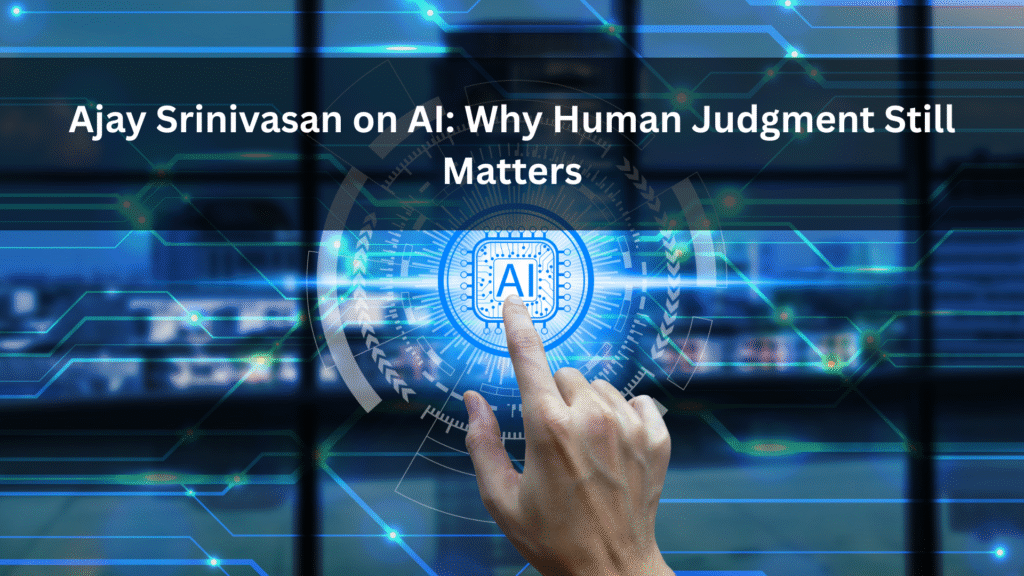As artificial intelligence is expected to completely transform the way business operates, there is one critical question that still lingers in our minds: What is the role of human decision-making going to be in this AI-driven era? Well, AI does excel at various tasks like scaling repetitive business operations, identifying patterns, processing data at scale and at speed, and much more. However, it lacks core human strengths like ethics, empathy and creativity – skills that are extremely important for strategic business choices.
Well, in this new era of technology, organisations should not completely rely on AI and automation for all their operations. Instead, they should consider integrating human decision-making with automation. Only then will they be able to thrive in this competitive world. Understanding the value of human decision-making is no longer an option. It has become a necessity. Here, in this blog, we are going to talk about why human decision-making is still important in this world of AI. Ajay Srinivasan is a financial services veteran with many years of experience and we will also talk about his take on this matter.
Importance of Artificial Intelligence:
In this fast-paced business world, AI is set to completely revolutionise the way businesses operate. With its enhanced algorithms, AI can be used to deal with huge chunks of data. It can also be used for large-scale pattern recognition. AI can process vast amounts of data with unparalleled speed and accuracy. AI is also being used in predictive analytics in various fields like finance, healthcare, education, etc. AI can also be used to analyse patterns and offer recommendations.
As per Ajay Srinivasan News, “With increased data and computing power, machine intelligence is racing ahead. With over 1.1 Bn weekly active users across the large AI tools, Gen AI has already become very present in our lives. This technology clearly has incredible power. It is also self-feeding, in the sense that AI can make AI better. Any such powerful force will have the potential for great good but can also have significant risks.”
Why does human judgment still matter?
Even with its enormous set of capabilities, AI cannot completely replace human judgment. No matter how advanced AI might become, there are certain areas where human judgment becomes inevitable. Human judgment has the capacity for nuanced decision-making, which AI cannot. Humans also help in ethical decision-making, a domain where AI so far has struggled to fetch insightful results. Humans mostly take broader social implications into account, which is less possible for AI. This again highlights the need for human judgment.
In situations where conflict resolution is required, AI will suggest standard solutions based on patterns. However, human judgment can be used to sense emotional nuances and adjust the approach to accommodate the needs of the various parties involved. This human flexibility is extremely vital in critical situations where empathy is required.
According to Ajay Srinivasan, “ In a world where AI thinks faster, human beings must think deeper. We must guard against cognitive offloading, where we rely on AI blindly. The future probably belongs to those who won’t just use this technology passively but who bring human wisdom and cognition to it, those who use it as a tool and not a crutch.”
The risks associated with over-reliance on AI:
An increased popularity in the belief that decisions should be solely made on data has led to the overestimation of the role of AI in dealing with large amounts of data. It should be noted that decision-making is not just about selecting the optimal result from an algorithm. It involves understanding the problem, validating the data sources, considering all the possibilities, and applying values in areas where human judgment is essential. Multiple companies may have access to the same amount of data, but the outcomes may be based on human judgment. One might double down on current strategies, while others might explore new markets.
There are various risks associated with depending too heavily on AI without human intervention. During the pandemic, Amazon’s AI-driven inventory system failed to adapt to the unprecedented surge in demand for different household essentials. Trained on pre-pandemic data, the company was not able to respond responsibly to the sudden transformation in the buying behaviour. There are a lot of other similar situations as well where AI has failed to deliver meaningful results. These examples highlight the importance of human judgment in order to mitigate the unintended consequences and ensure ethical decision-making.
To end with:
As AI continues to evolve, the balance between human judgment and decision-making will witness a rapid shift in the near future. There also human judgment will continue to remain a critical element for ethical, contextual, and emotional decision-making. So, it is important for businesses to strike the right balance between the two forces. That way, we will be able to build a future where AI can be used as a tool to deliver faster and more reliable results based on human judgment.




